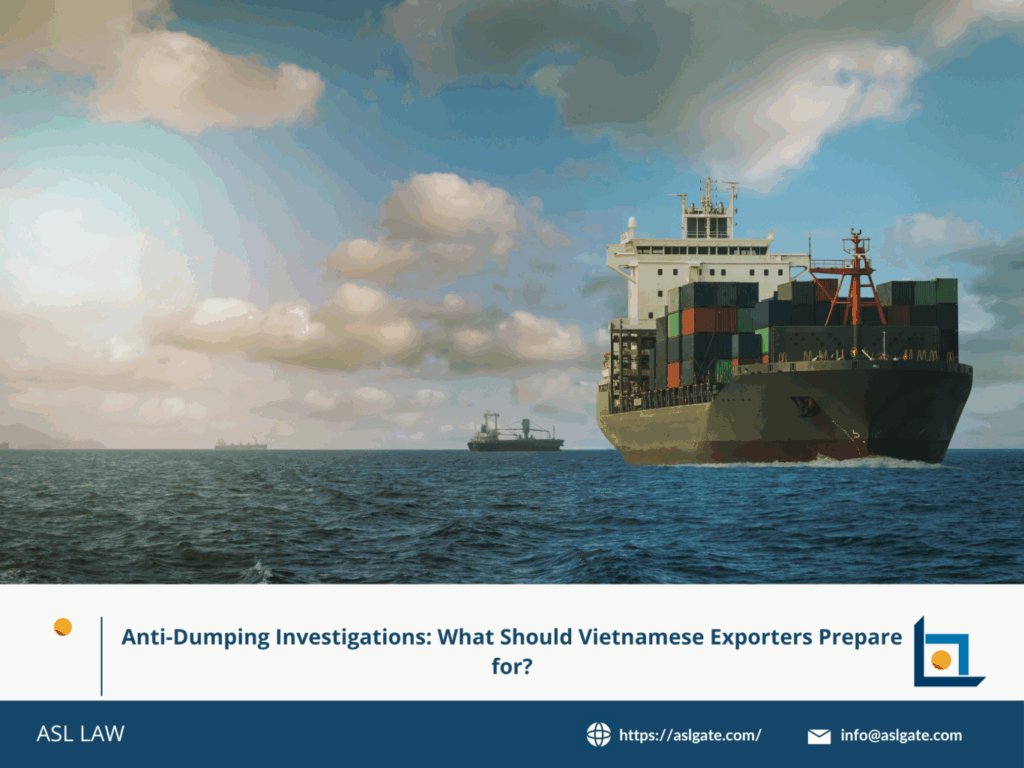As Vietnam deepens its integration into the global economy, its export products are increasingly subject to trade remedy measures—especially anti-dumping investigations launched by major markets such as the U.S., EU, India, and Brazil. Once under investigation, businesses face the risk of high duties and significant damage to market share and brand reputation abroad.
Being prepared for an anti-dumping investigation requires more than just the legal team—it demands coordinated efforts across accounting, export-import, production, and business strategy departments.
1. Understand the investigation process and cooperation obligations
Anti-dumping cases typically begin with a petition filed by domestic producers in the importing country. Once an investigation is initiated, the exporter receives a detailed questionnaire and must respond within a strict timeline (usually 30–37 days).
Businesses must understand the investigation phases: initiation, questionnaire response, on-site verification, preliminary determination, and final determination. Full, timely, and transparent cooperation is essential to avoid being subject to “adverse facts available” (AFA) duties, which are often extremely high.
2. Systematically prepare accounting, financial, and export data
To properly respond to the questionnaire and pass the on-site verification, exporters must maintain a transparent accounting system with clearly separated data for each market and each export transaction—traceable to original documents (e.g., invoices, contracts, bills of lading).
Alignment between accounting, export, and sales departments is critical. Businesses should adopt international accounting standards, ensuring that production costs, selling expenses, and profit margins are broken down by each product line under investigation.
A robust data storage system should also be implemented to ensure accessibility and traceability throughout the investigation period.
3. Define your response strategy: Defend, group participation, or exit?
Depending on export volume and market objectives, businesses can consider various response strategies:
- Cooperate fully to secure a separate duty rate
- Join an industry group response through trade associations
- Negotiate with clients or revise market strategies
In addition, companies should evaluate the benefits of engaging international legal counsel, local representatives, or trade remedy experts to ensure their interests are effectively protected.
ASL Law is a leading full-service and independent Vietnamese law firm made up of experienced and talented lawyers. ASL Law is ranked as the top tier Law Firm in Vietnam by Legal500, Asia Law, WTR, and Asia Business Law Journal. Based in both Hanoi and Ho Chi Minh City in Vietnam, the firm’s main purpose is to provide the most practical, efficient and lawful advice to its domestic and international clients. If we can be of assistance, please email to [email protected].
ASL LAW is the top-tier Vietnam law firm for Anti-dumping & countervailing. If you need any advice, please contact us for further information or collaboration.

 Tiếng Việt
Tiếng Việt 中文 (中国)
中文 (中国) 日本語
日本語

